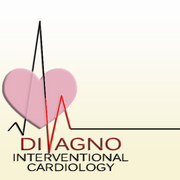5 Ways to Promote Heart Health During the Fall & Winter Seasons

Whether you’re a fan of football season or love the holidays, fall and winter are often associated with fun and celebration. However, the change of seasons also marks a time for increased cardiac risks. In fact, heart attacks occur most frequently during the winter months. Providing comprehensive care in Rochelle Park, NJ, DiVagno Interventional Cardiology, M.D., P.A., highlights a few ways you can step up your heart health when the colder weather arrives.
5 Cardiologist-Approved Tips to Boost Heart Health
1. Keep Exercising
As temperatures drop and days get shorter, people tend to workout less and spend more time indoors. However, it’s best not to enter full hibernation mode and keep active. Exercising on a regular basis will strengthen your cardiac function and prevent weight gain—a risk factor for heart disease.
2. Stay Sugar Smart
 From Halloween candy to Thanksgiving pies, it’s hard to avoid sugar during the latter half of the year. While indulging in proper portions every so often is usually fine, it’s important not to overdo it on the sweets. Consumption of excess sugar increases your risk of heart disease, as it promotes high blood pressure and weight gain.
From Halloween candy to Thanksgiving pies, it’s hard to avoid sugar during the latter half of the year. While indulging in proper portions every so often is usually fine, it’s important not to overdo it on the sweets. Consumption of excess sugar increases your risk of heart disease, as it promotes high blood pressure and weight gain.
3. Wash Your Hands
Recent research suggests that the respiratory infections common in the fall and winter pose a risk to cardiovascular health. Specifically, in the days following a cold, bronchitis, flu, or pneumonia, people experience an increased risk of heart attack. It is likely due to the body’s inflammatory response that places stress on the blood vessels. Although the risk can be fairly low for healthy individuals, it’s still good reason to defend yourself from germs.
4. Cover Up in the Cold
If you have asthma, it’s important to avoid factors that trigger a flare-up—such as exposure to cold temperatures. Start dressing in layers and bring a coat with you when you go out, as temperatures drop at night. In the event of a flare-up, people with asthma experience a heightened risk of a heart attack.
5. Shovel Snow Safely
Heavy lifting, exposure to the cold, and long periods of exertion increase a person’s risk of a heart attack. Individuals who aren’t conditioned for heavy exercise will want to get their doctor’s approval before shoveling snow and make sure to work slowly and take breaks when completing the chore.
While these tips help protect your heart, it’s important to visit your health care providers to assess your cardiovascular needs. Whether you have a condition or concerns about your heart health, turn to the specialists at DiVagno Interventional Cardiology, M.D., P.A. Backed with state-of-the-art diagnostic tools, this experienced team offers patients a high level of care. You can find more information about their services online, or call (201) 845-3535 to schedule an appointment today.
About the Business


